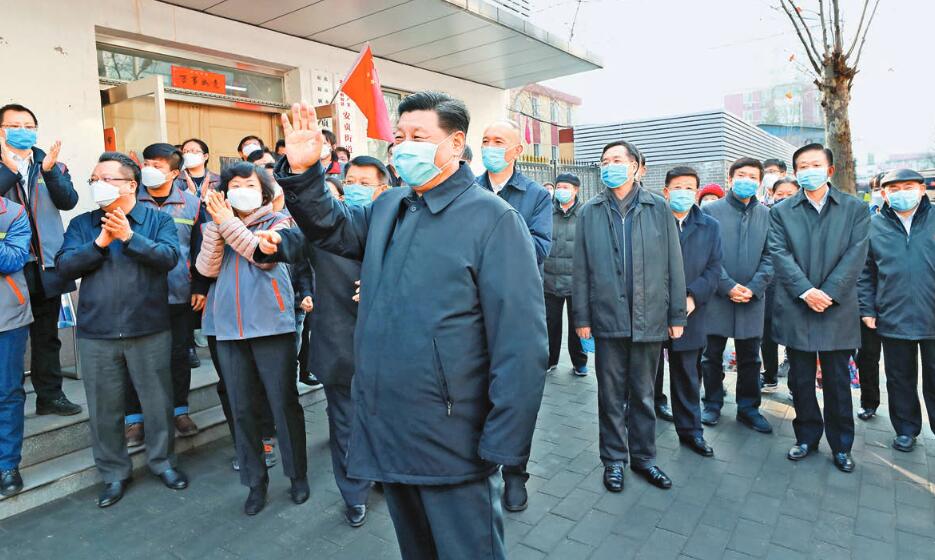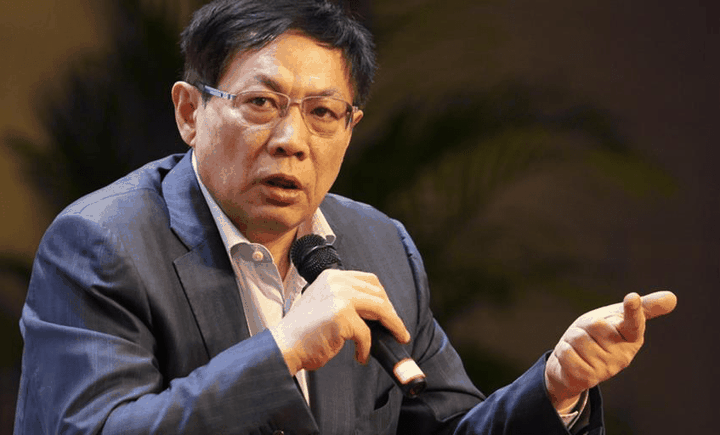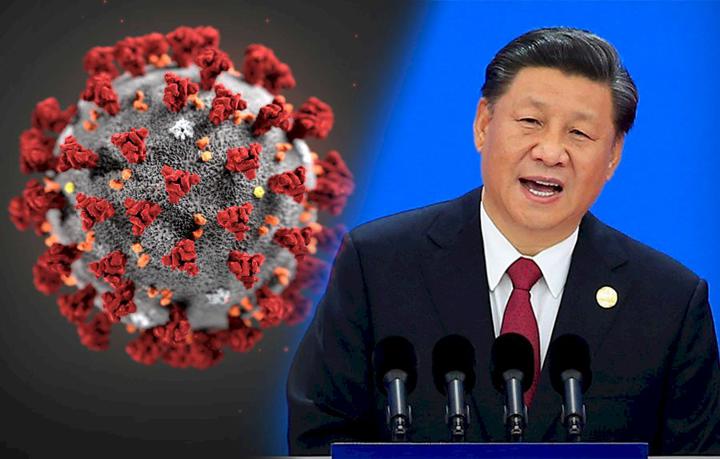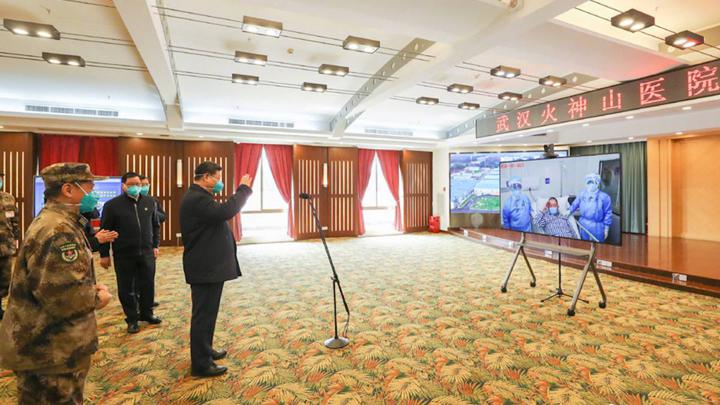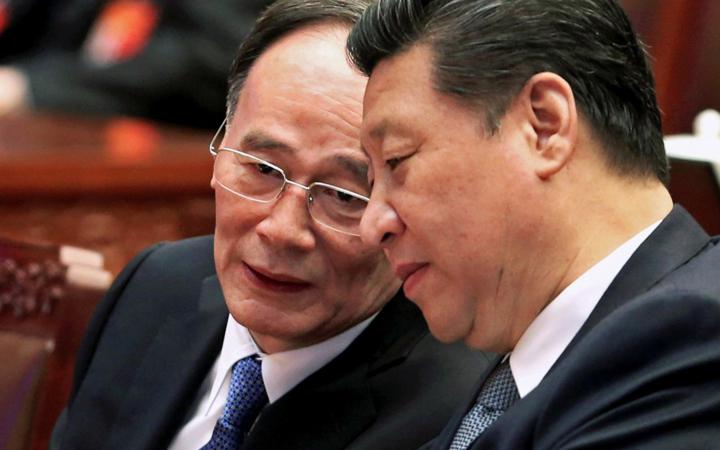Chinese realty tycoon Ren Zhiqiang is known in the Chinese Communist Party for being an outspoken maverick. Ren, former chief of Beijing Huayuan Group, a state-owned developer, again managed to stoke fresh opposition to Chinese President Xi Jinping earlier this month with an opinion piece that went viral.
In his tirade crucifying the top leader, Ren called Xi a “clown” and likened him to the emperor in the famous story by Danish writer Hans Christian Andersen.
Ren, a member of the party’s princeling clique whose father served as a deputy commerce minister under Mao Zedong, did not mince his words when deprecating Xi’s handling of the pneumonic plague in a post headlined “An official call to arms against Xi: The clown who insists on wearing the emperor’s new clothes.”
He said it was “a whistle in the wind” for Xi and his underlings to muzzle people’s simmering anger amid the rampant cover-ups and underreporting following the viral outbreak in Wuhan that began at the end of 2019, and that Xi himself deserved a fair share of the blame due to his inaction and measures implemented too late.
“There stands not an emperor in his new clothes but a clown who is stripped of his clothes but still wants to be an emperor,” read the sarcasm-laden piece.
-
![Realty tycoon-turned opinion leader Ren Zhiqiang has been an outspoken critic of Xi Jinping for years. Photo: Weibo]()
Real estate tycoon-turned opinion leader Ren Zhiqiang has been an outspoken critic of Xi Jinping for years. Photo: Weibo
-
![Chinese President Xi Jinping's poor handling of the epidemic after it broke out in Wuhan at the end of 2019 has exposed him to sharp jabs from his foes within the party. Photo: Facebook via RTI]()
Chinese President Xi Jinping’s poor handling of the epidemic after it broke out in Wuhan at the end of 2019 has exposed him to sharp jabs from his foes within the party. Photo: Facebook via RTI
The article attributed to Ren first appeared on Twitter and in some overseas Chinese media outlets earlier this month. Ren’s own account on Weibo, China’s Twitter-like service, was shut four years ago.
Ren’s call to arms against the “unaccountable Xi,” issued right before the leader flew in to the epidemic epicenter of Wuhan earlier this month, is the latest addition to a string of stinging polemics he has issued over the years since Xi grabbed the mantle of the party and nation in 2012.
Ren, 70, has not been seen since then, and his friends have taken to social media seeking information about his whereabouts. News came out during the past weekend, however, that Ren is being held at a secret prison in a suburb in Beijing and that he may be locked up for no less than 15 years as he has been a recidivist, relentlessly attacking Xi. It is said that his interrogators, dispatched by the party’s commission on discipline inspection, have been given instructions from the top echelon of the central leadership to treat him harshly because he has infuriated the top leader.
Observers say Xi’s fear is that, now that his botched response to the emergence of a highly contagious pathogen in Wuhan has exposed him to sharp jabs from foes within the party, open accusations made by a well-known figure like Ren, a party scion and a businessman-turned opinion leader, may do more harm than broadsides from a dissident, an intellectual or an anti-China firebrand in the West.
-
![Chinese President Xi Jinping's poor handling of the epidemic after it broke out in Wuhan at the end of 2019 has exposed him to sharp jabs from his foes within the party. Photo: Facebook via RTI]()
Chinese President Xi Jinping’s poor handling of the epidemic after it broke out in Wuhan at the end of 2019 has exposed him to sharp jabs from his foes within the party. Photo: Facebook via RTI
Ren has been in Xi’s bad books since 2016, when he was threatened with suspension of his party membership if he continued to heap derision on Xi’s drive to further tighten his grip on China’s already pliant state media.
In a memoir published in 2013, Ren revealed that Vice-President Wang Qishan, Xi’s trusted lieutenant in the president’s graft-busting war to amass power, was his high-school classmate in Beijing.
Taiwan-based China commentator Paul Lin, a veteran news professional who worked for the Hong Kong Economic Journal and China Times, noted in his column that Ren could be expressing the thoughts of Wang, given the rumors that Wang was “demoted” to his current ceremonial post after heading the party’s high-powered anti-corruption watchdog for years and after he was banned from attending the Politburo’s Standing Committee meetings.
Lin’s proof is that Wang admitted he was merely helping Xi perform a few “ceremonial diplomatic duties” when receiving the Mexican foreign minister in July last year.
Lin said Wang could have been sidelined by Xi during discussions on the China-United States trade dispute when their ideas diverged, despite Wang’s proven expertise in managing financial and economic risks when running China Construction Bank and China International Capital Co, Ltd and serving as a deputy premier responsible for finance.
Also, people’s call for Wang to return to leading the government during the height of the pandemic has put Xi’s long absence from the public eye and tardy measures in a very unflattering light. Wang parachuted into Beijing as its mayor in 2003 and swiftly led the SARS-ravaged city out of the crisis.
-
![Anticorruption tzar Wang Qishan (L) speaks with Xi Jinping.]()
Anti-corruption tzar Wang Qishan, who is now China’s vice-president, speaks with Xi Jinping. Photo: Reuters
There has also been another open letter circulating online since last week suggesting convening an extraordinary plenum of the Politburo to reflect on “Xi’s wrongs” since taking office and decide if he should step down as president, party chief and commander of the military.
The appeal, issued in the wake of the health crisis in China, to take stock of Xi’s performance not only focuses on his role in China’s war on the virus but also on his major policy blunders since 2012, from a trade and economy falling-out with the US to the failure to enhance national recognition among Hongkongers and Taiwanese to foster reunification.
The letter has been relayed by a few members of the princeling faction who are inclined to political reforms and liberalization, including Chen Ping, a publisher and founder of the Hong Kong-based SunTV network, who shared it on WeChat, according to the German broadcaster Deutsche Welle and Radio Taiwan International.
Chen told RTI that it was precisely the lack of press freedom on the mainland that fueled rumormongering and that the anonymous letter spoke volumes about the widespread exasperation felt by a cross-section of party members over Xi’s backtracking on political and economic reforms. Critics who shared the letter included hawkish cadres who had been underwhelmed by Xi’s ability to lead during a testing time, he said.




